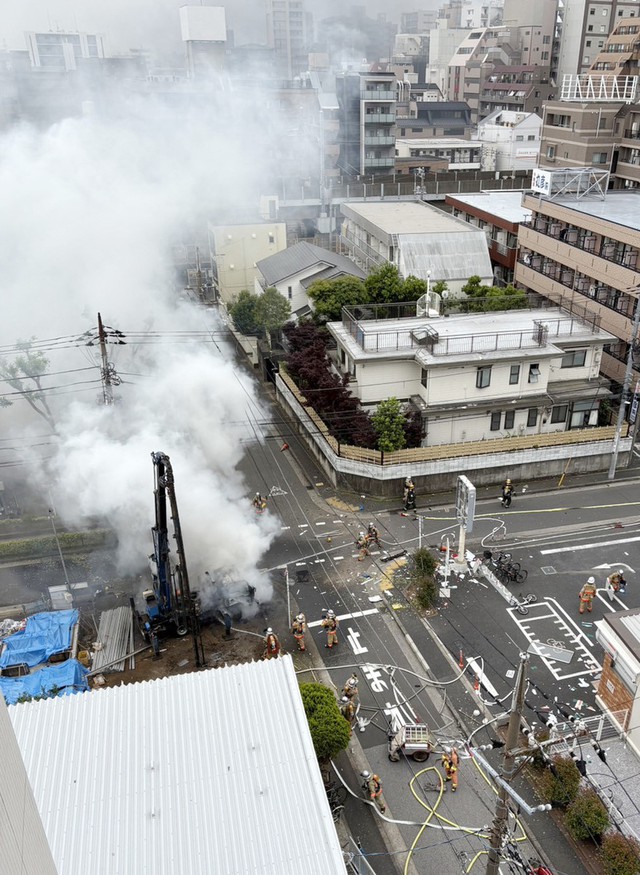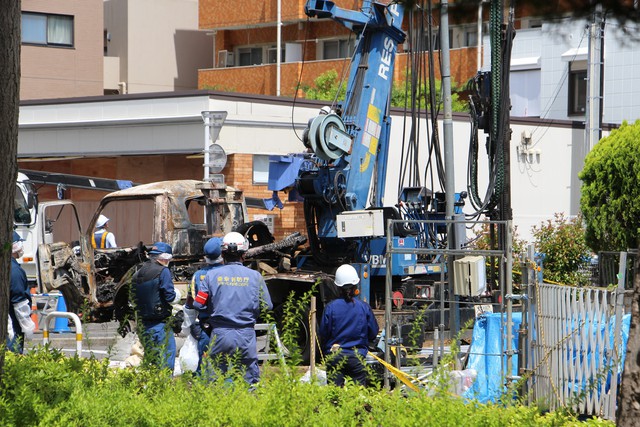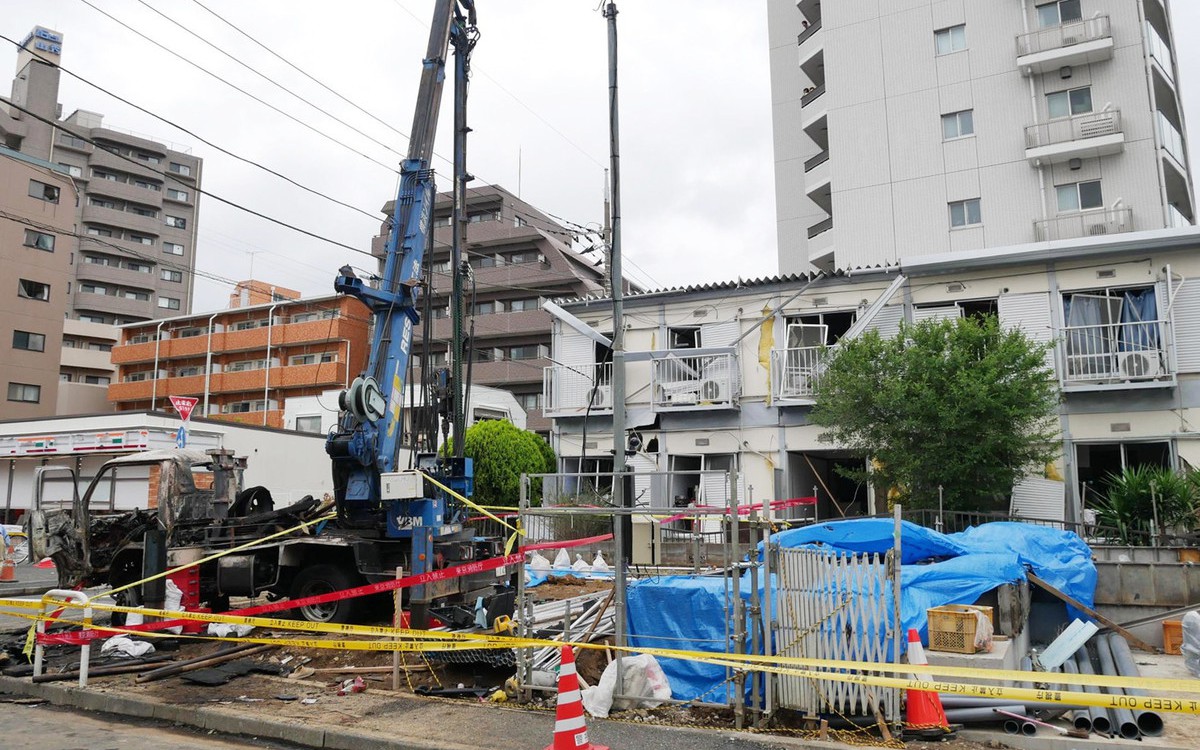
White smoke rises around the site of the explosion in Tokyo's Edogawa Ward, May 27, 2025. Photo: Courtesy of a Jiji Press reader
With the site said to have been a paved parking lot for about 40 years, an expert says that the gas cylinder "may have been illegally dumped a long time ago."
The explosion occurred around 9:30 am Tuesday last week.
Acetylene gas, used for welding and cutting metals, leaked from the ground and ignited when a pipe was driven in to reinforce the ground for new housing construction.
Ten people, including workers and local residents, sustained minor injuries, and walls were damaged on 38 buildings within a 120-meter radius.
Tokyo's Metropolitan Police Department found a gas cylinder about 100 centimeters long, buried about 50 centimeters deep.
An imprint indicated it passed inspection in November 1964 and may have been underground for decades.
With the cylinder having a six-centimeter hole in its central section, the MPD believes that a spark ignited the gas leaking from the cylinder damaged during excavation work at the site.
Acetylene gas, used mainly at construction sites and factories, is flammable.

Investigators from Tokyo's Metropolitan Police Department conduct an on-site inspection in Tokyo's Edogawa Ward, May 28, 2025. Photo: Jiji Press
Japan's high pressure gas safety law requires the gas to be stored in well-ventilated areas at temperatures below 40 degrees Celsius.
According to the Japan Industrial and Medical Gases Association and others, the law mandates that gas cylinders display the owner's name or a number indicating ownership.
Users are expected to return cylinders to their owners after use, but some do not, according to sources familiar with the matter.
In May 2021, a total of 20 people were severely or slightly injured after inhaling gas leaking from a damaged high-pressure gas cylinder believed to have been buried for over 50 years.
The MPD is investigating the recent explosion in Tokyo's Edogawa Ward on suspicion of professional negligence resulting in an explosive rupture, examining whether the contractor was negligent.
"We'll also investigate how the gas cylinder was buried, but if it was 60 years old, I wonder whether we will be able to trace the owner," a senior investigation official said.
The owner is "highly likely to have violated the high pressure gas safety law, but the statute of limitations may have expired."



Max: 1500 characters
There are no comments yet. Be the first to comment.